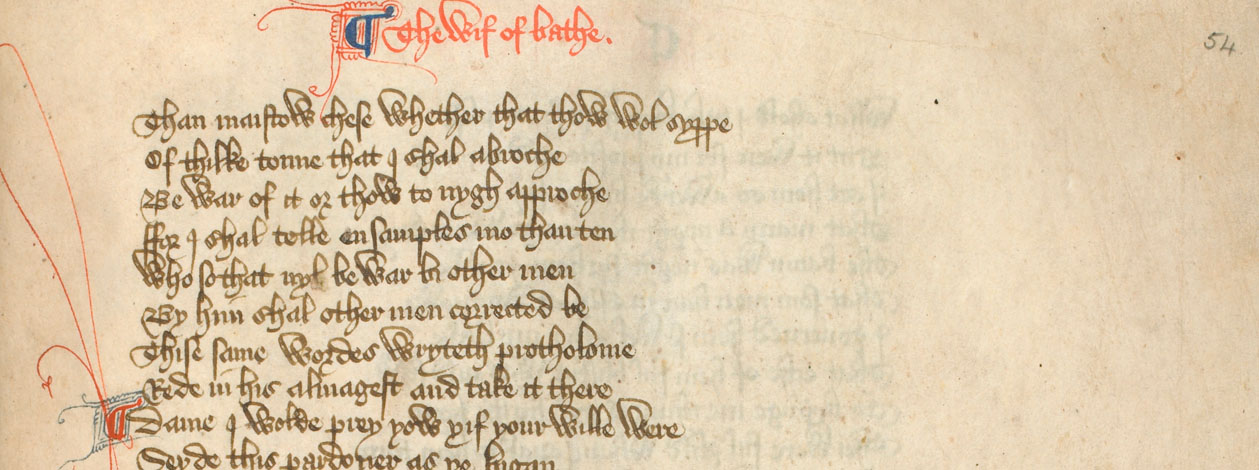Late Medieval English Scribes is an online catalogue of all scribal hands (identified or unidentified) which appear in the manuscripts of the English writings of five major Middle English authors: Geoffrey Chaucer, John Gower, John Trevisa, William Langland and Thomas Hoccleve.
We set out to offer an image of each scribal hand in each medieval or early modern manuscript of the English writings of five principal authors of the late fourteenth and early fifteenth centuries: William Langland, Geoffrey Chaucer, John Gower, John Trevisa and Thomas Hoccleve. In addition to these overall aspect images of the scribal hands, we also offer brief descriptions of the manuscripts and images of sample letter forms for eight letters, a, d, g, h, r, s, w and y, chosen as having the most variable forms in late medieval English scripts and thus the best distinguishing graphs of a scribal hand. We also offer images of some wildcard letter forms (including thorn and yogh) for other letters or marks of punctuation that are distinctive to each scribal hand.
This website does not include or illustrate manuscripts of the French or Latin writings of John Gower, except where these occur in the same manuscripts as his Confessio Amantis, which is written in English.
With a few exceptions (mounted early in the project period), because of time and funding limitations, we have also not been able to mount images and descriptions of the manuscripts of other authors’ works written by the same scribes as wrote works of our five authors. In most cases these are listed under the scribes’ profiles, but with blank entries for the descriptions and images. We hope in future to be able to complete these to offer a fuller picture of the work of these scribes.
Website
Duration: 1st April 2009 – 31st July 2011
Project Team
- Prof. Linne Mooney (PI – University of York)
- Dr Estelle Stubbs (Research Associate – University of Sheffield)
- Michael Pidd (The Digital Humanities Institute)
